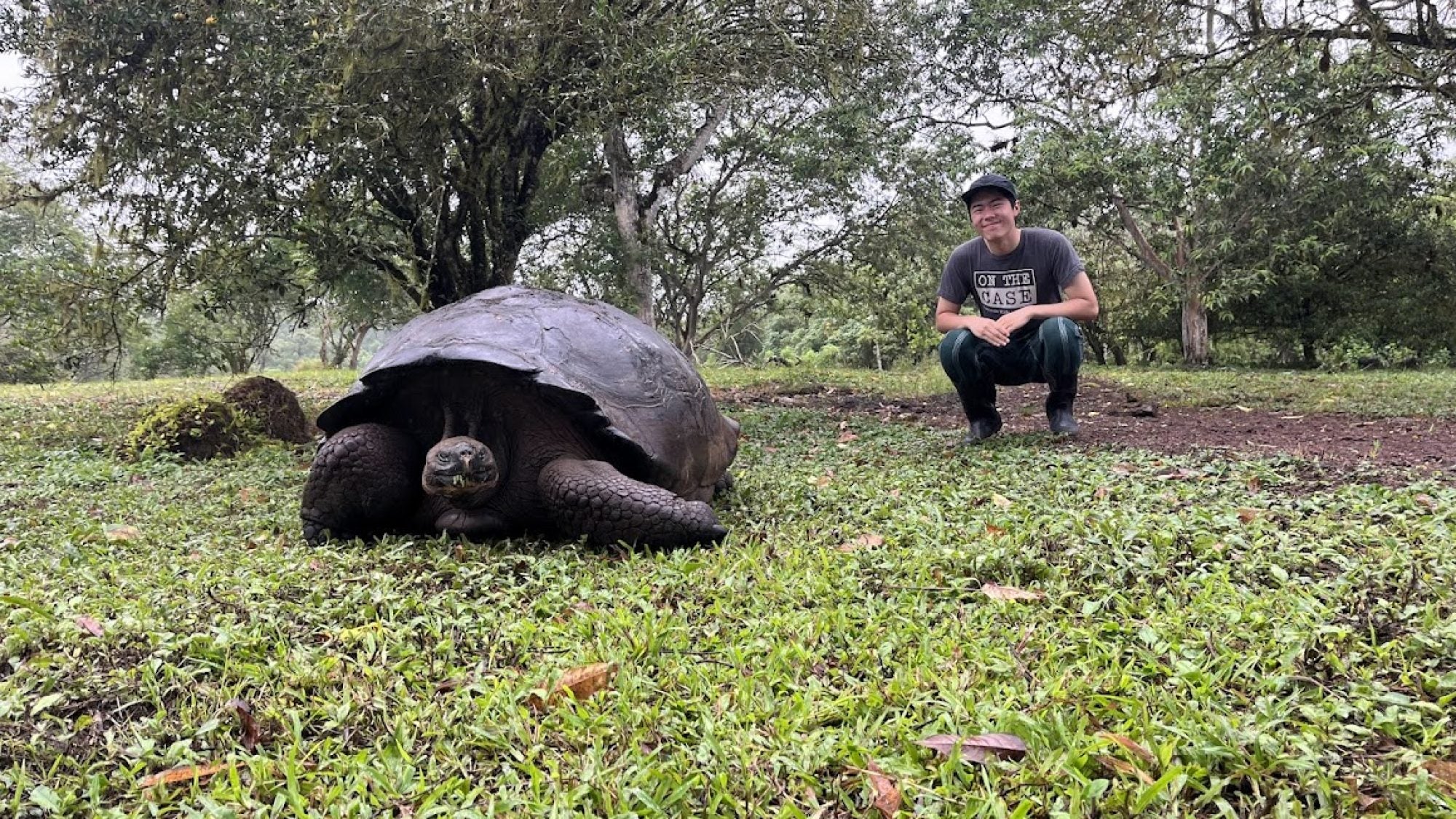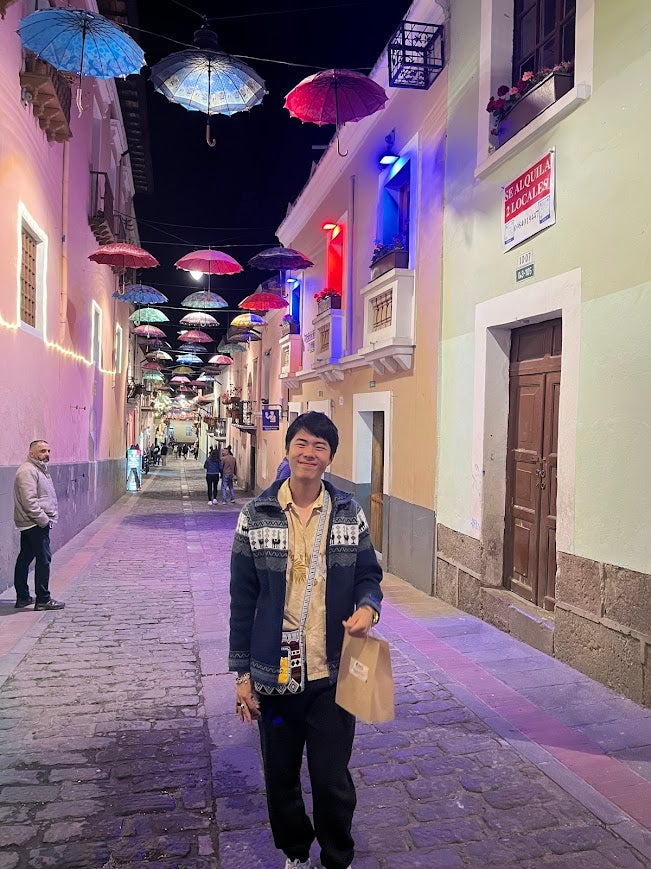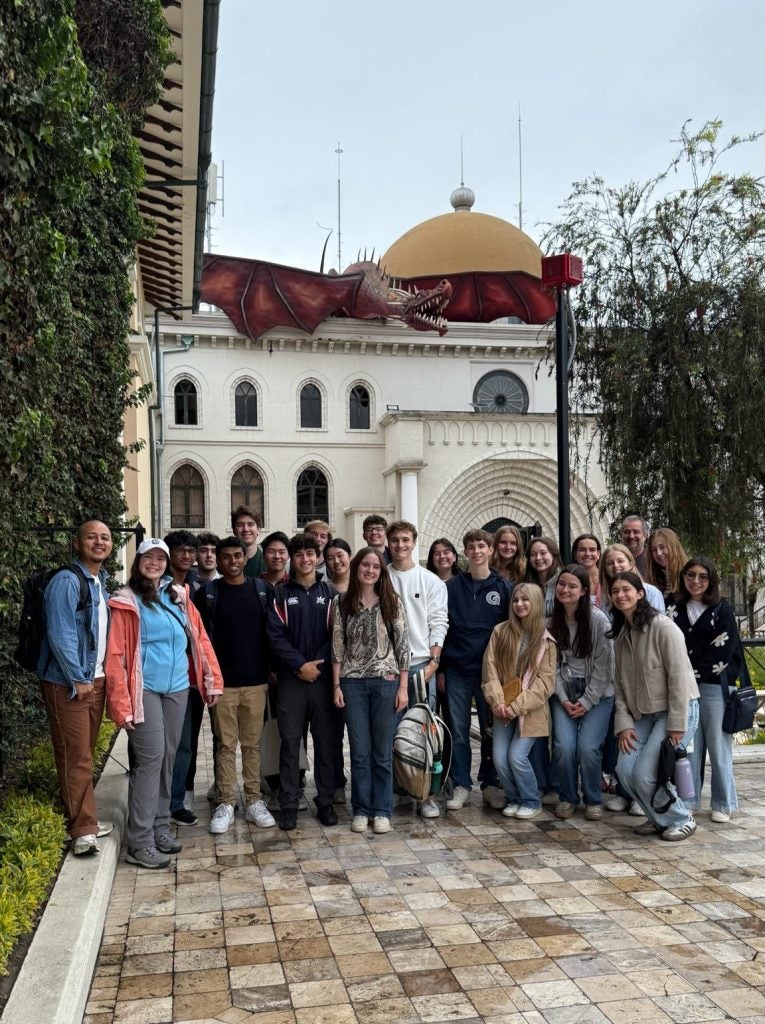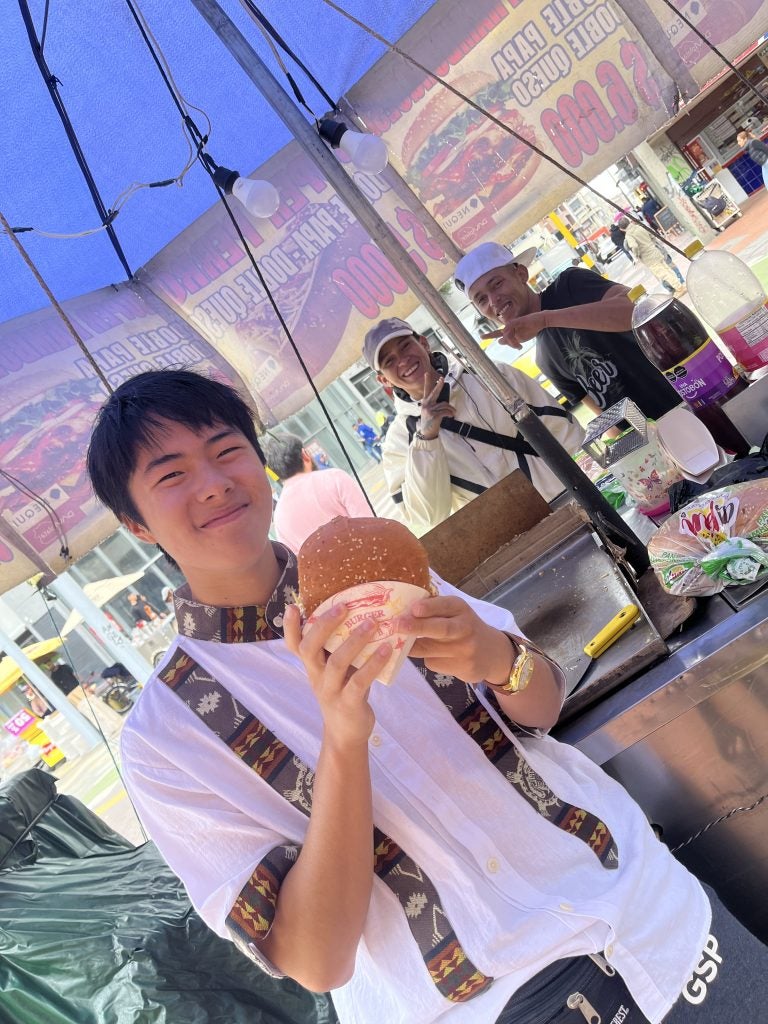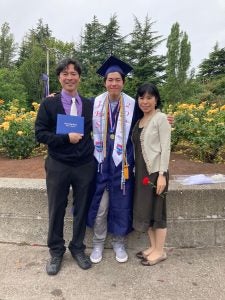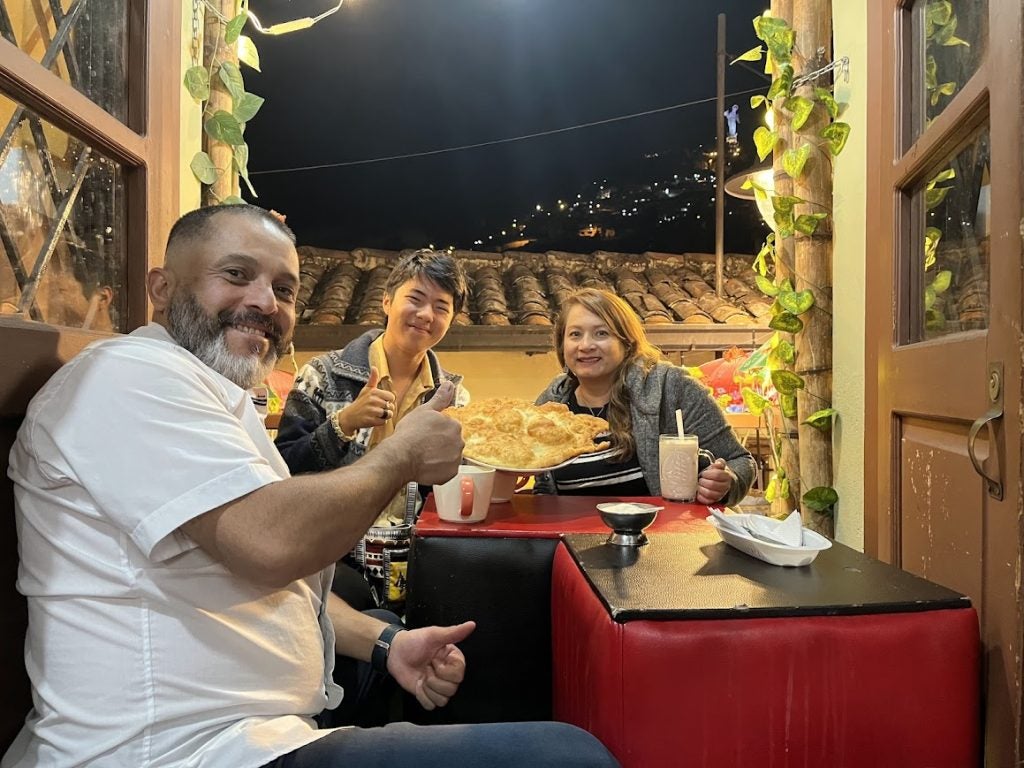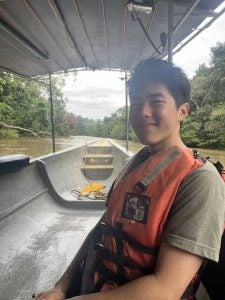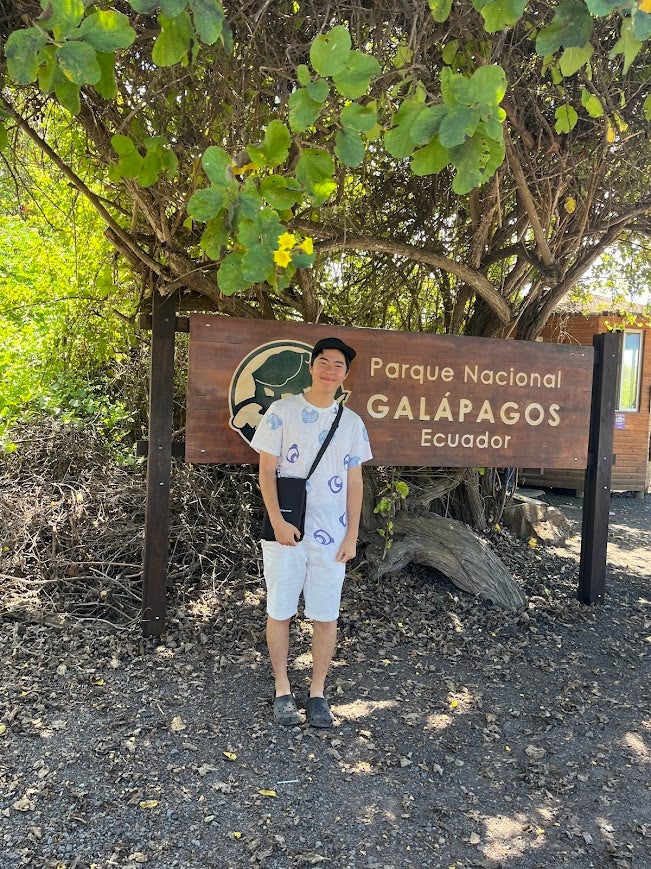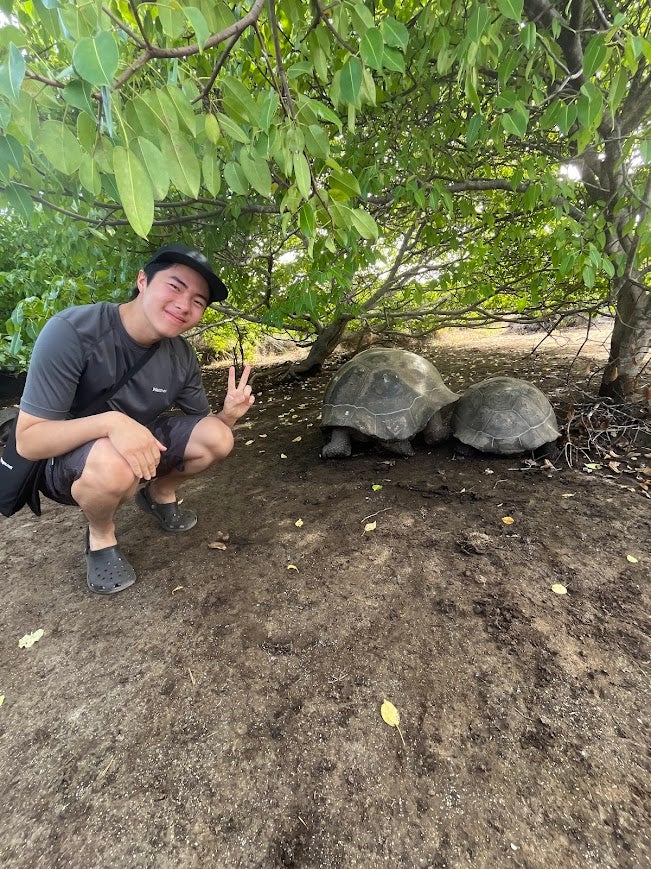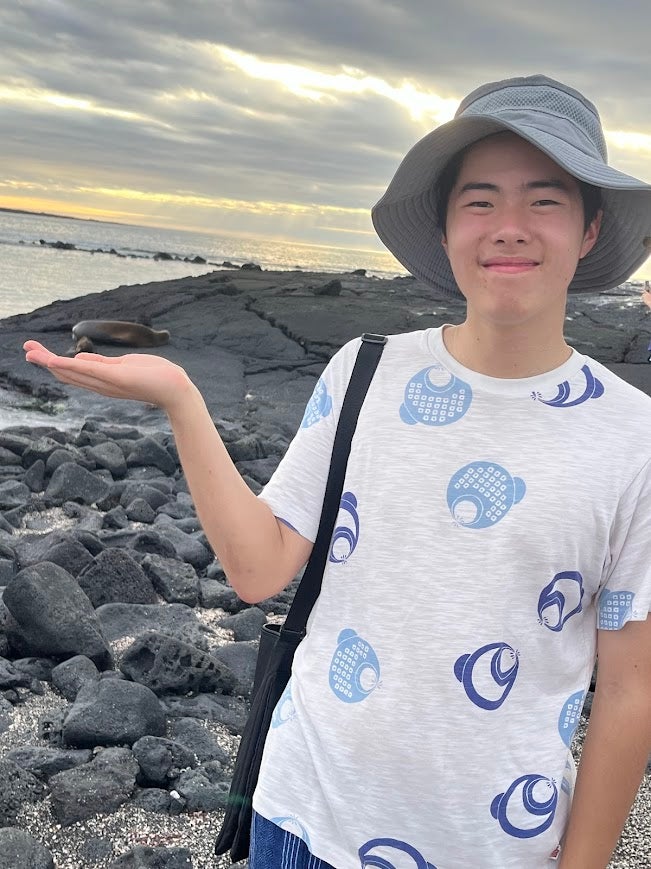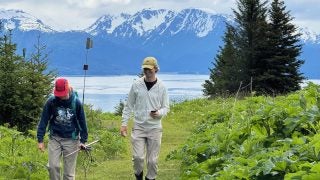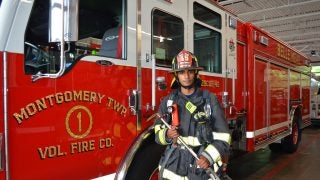This story is part of our summer storytelling series, which follows Hoyas’ adventures near and far.
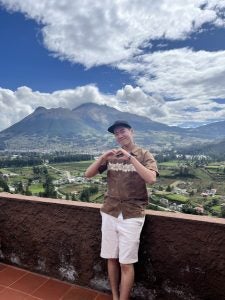
This June, Jeremy Suzuki (SFS’28) started his mornings by walking to the bus stop down the street. For 35 cents, Suzuki commuted to the Universidad San Francisco de Quito, one of Ecuador’s premier universities.
On the bus ride, he’d take in Ecuador’s capital and its streets lined with vendors selling fresh Ecuadorian dishes, produce, sweet treats and handmade crafts. Suzuki has indulged on multiple occasions during his monthlong stay, from a wooden spoon to an artisanal mortar and pestle.
Suzuki liked to converse with local shopkeepers and street vendors while he was exploring Quito. The informal conversations with locals allowed him to practice what he was learning in his university Spanish classes.
This summer, Suzuki studied abroad as part of the Georgetown in Quito: Nature and Culture in Latin America program. For six weeks, Suzuki lived with a host family in Quito while learning Spanish and Latin American literature, nature and culture at the Ecuadorian university.
As part of his program, Suzuki also explored the natural wonders of the country, including forays in the Amazon Rainforest and the Galapagos Islands.
The experience is one Suzuki has treasured, having long been interested in Latin America and migration issues.
“Being an American and always calling myself an American, it kind of made me feel silly to have not seen the rest of the Americas,” he said. “Being able to spend time here in South America, I feel like I’m getting a more complete experience of this regional identity I’ve had in my life.”
